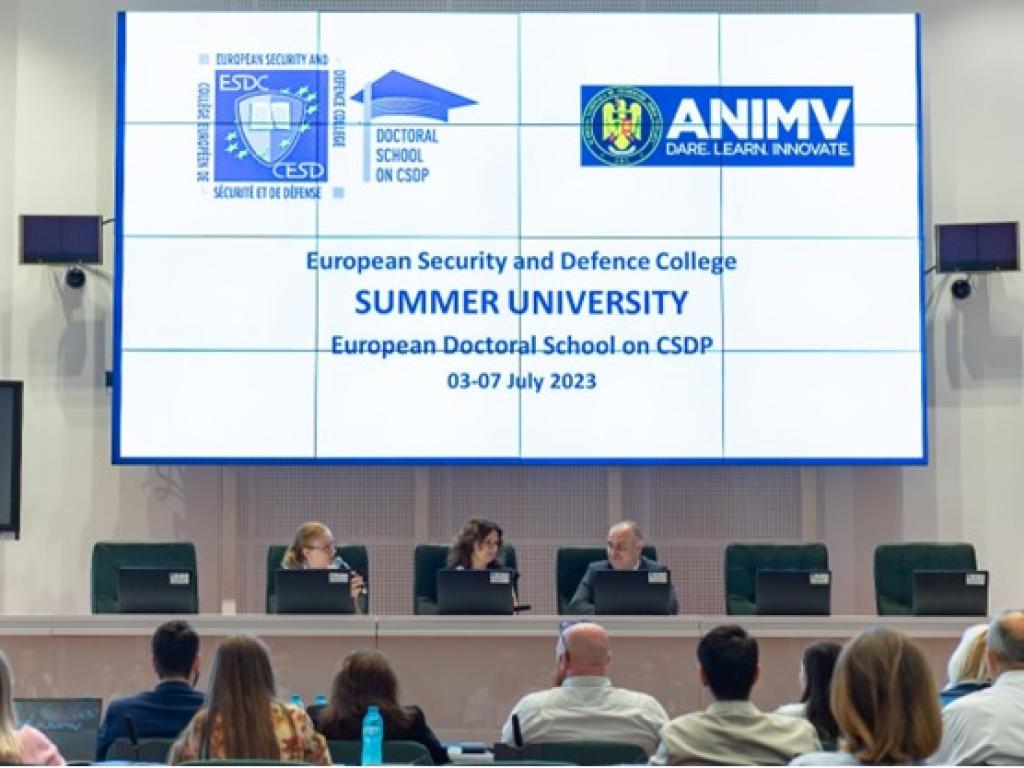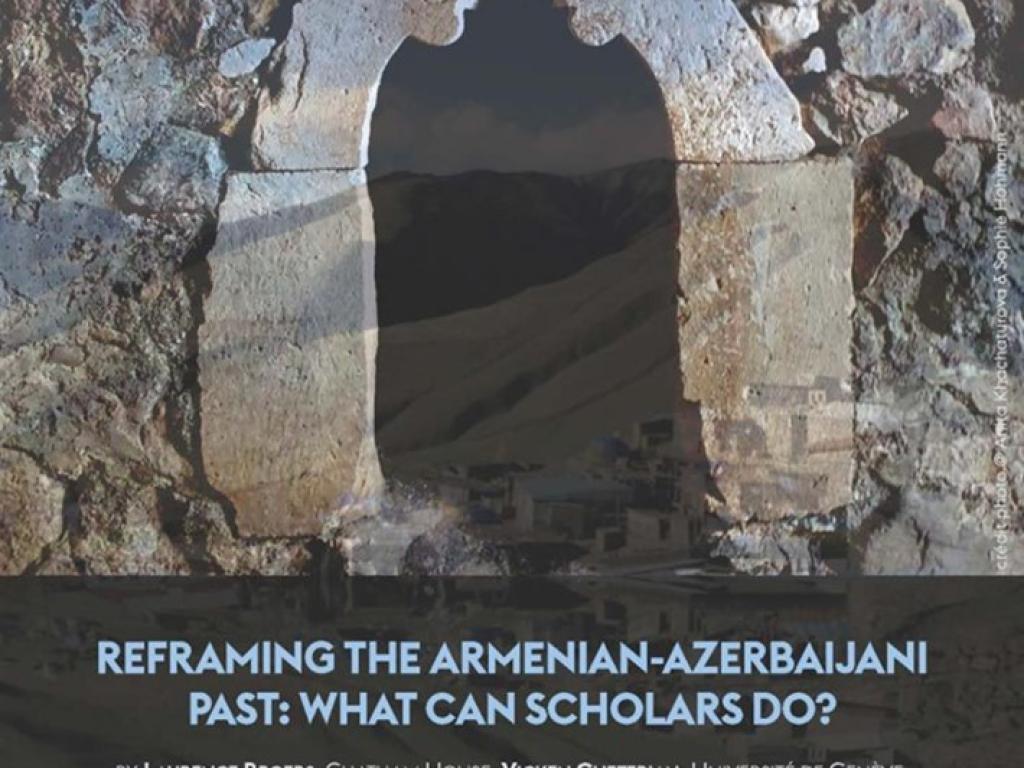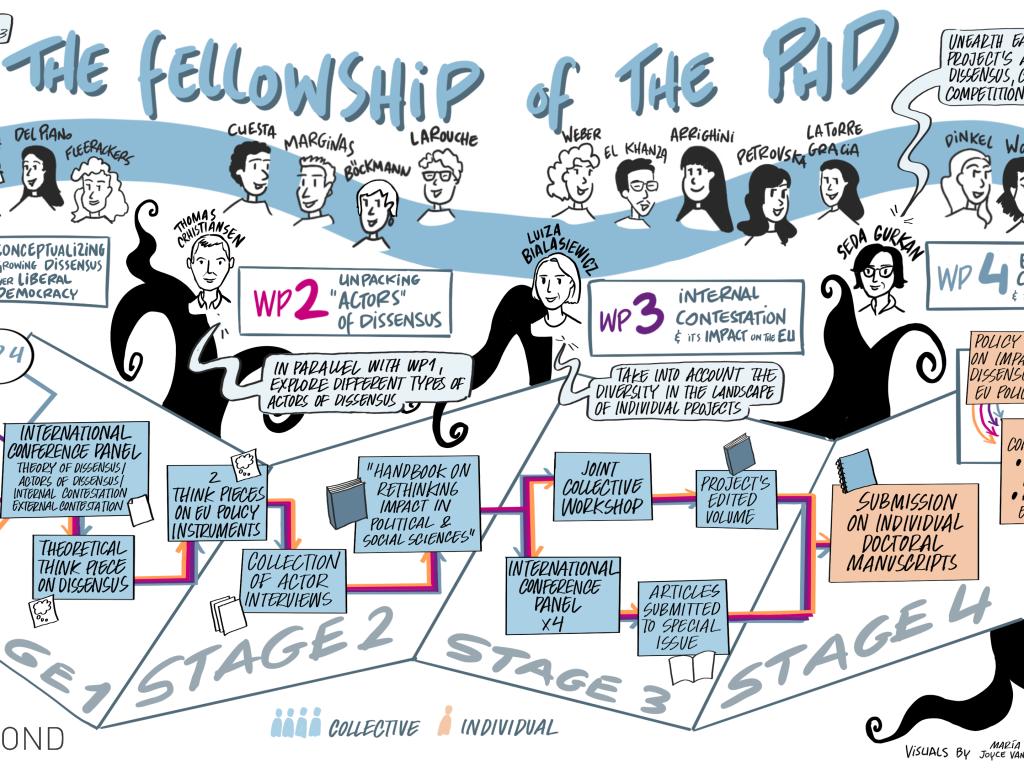Luigi Nicolò Segarizzi
GEM-DIAMOND doctoral fellow
ESR 13 – Impact of dissensus driven by external competition on EU peace support & stability instruments and mechanisms
Luigi Nicolò is a Marie Skłodowska-Curie Fellow at the Université libre de Bruxelles and Babeș-Bolyai University in Romania. His research interests concern the role of multilateral institutions in European security as well as the impact of hybrid threats on the EU's action in post-soviet countries.
Externally-driven dissensus against EU's peace and security initiatives. Lessons from an Eastern neighborhood in turmoil.
Supervisors
- Aude Merlin
- Valentin Naumescu
Research abstract
Key concepts: European security, Externally-driven dissensus, Hybrid threats, EU's CSDP instruments, War in Ukraine, post-soviet space.
Research Question(s)
In order to answer to this ‘primary research question’, a focus on the following ancillary questions is required:
1. How to define, frame and operationalize political dissensus?
2. To what extent dissensus in conflict-affected areas is linked to peace processes?
3. To what extent dissensus can be driven by exogenous influences? How illiberal actors influence dissensus? Especially, in which ways, modalities and instruments external influences shape political dissensus (e.g. disinformation, metanarratives ...?)
4. Are multilateral peace and security initiatives a target of exogenous-driven dissensus? Are EU initiatives a target?
5. How EU peace and security instruments are adapting to the geopolitical competition and the related mounting dissensus?
Research Hypothesis(es)
The consequential correlation can be narrowed to two main interlinked correlations of variables:
a) A causality between illiberal actors and mounting dissensus in conflict-prone areas
b) A causality between exogenous-driven dissensus and the EU initiatives
Personal Research Bibliography (So Far)
Delcour Laura, Esther Ademmer and Kataryna Wolczuk “Beyond geopolitics: exploring the impact of the EU and. Russia in the ‘contested neighborhood’” , Eurasian Geography and Economics 57, 2016
Ginty, Roger & Darby, John. Third Parties: External Influences on the Peace Process. 2002
Kuzio, Taras, “Ukraine between a Constrained EU and Assertive Russia”, Journal of Common Market Studies, vol. 55, 2017
Romanova Tatiana, Maxine David “From a ‘Common’ to a ‘Contested’ Neighbourhood: Connecting Levels of Analysis in EU–Russia Interaction”, in The Routledge Handbook of Eu-Russia Relations, edited by. London: Routledge, 2021.
Smith, Hanna, “ In the era of hybrid threats", Hybrid CoE Strategic Analysis 1,October 2017
Smith, Michael, “Beyond the comfort zone: internal crisis and external challenge in the European Union's response to rising powers”, International Affairs, vol. 89, 2013
Tocci, Nathalie, The EU and Conflict Resolution: Promoting Peace in the Backyard, London, Routledge, 2007.
Selected Case Studies
His research interests concern European security and the EU’s action in post-soviet countries. Prior to joining the GEM-DIAMOND project, Luigi Nicolò worked at the EU Delegation to Armenia, at the European Parliament, at the IMEMO RAN Institute in Moscow and at the Italian Chamber of Commerce in India. He also volunteered for a UNIDO project in Russia.
Luigi Nicolò holds an MA in International Relations (Double-Degree) from the University of Kent in Canterbury and the HSE University in Moscow, an Advanced MA in European studies from the College of Europe in Bruges and a BA in International Affairs from the University of Milan with an Erasmus + experience in Lithuania. In 2022 completed a specialization course at The Italian Institute for International Political Studies (ISPI) in Milan.
• “The European Defence between Moscow and Washington”, 4th Tartu Annual Conference on Russia and East European studies, Tartu (Estonia),11 June 2019
• “Mare Nostrum/Terra Nullius: influenze russo-turche nel mediterraneo”. [Mare Nostrum/Terra Nullius: Russian and Turkish influence in the Mediterranean], TUTTI Europa 2030, October 2021
-

The Doctoral School on CSDP managed by the European Security and Defense College
24 July 2023
Impressions from Luigi Nicolo’ Segarizzi, after attending the European Security and Defense College's Doctoral School on CSDP as part of his Ph.D. project
-

Bridging the Armenian and Azerbaijani divide: the role of academia in reframing conflictual narratives
28 April 2023
As tensions mount in the Caucasus, academic scholars discuss how to redefine the enduring conflictual narrative on the relations between Baku and Yerevan
-

Birth of the GEM-DIAMOND Fellowship of the Ph.D.
1 October 2022
16 MSCA Fellows successfully selected following a gruelling selection process.



